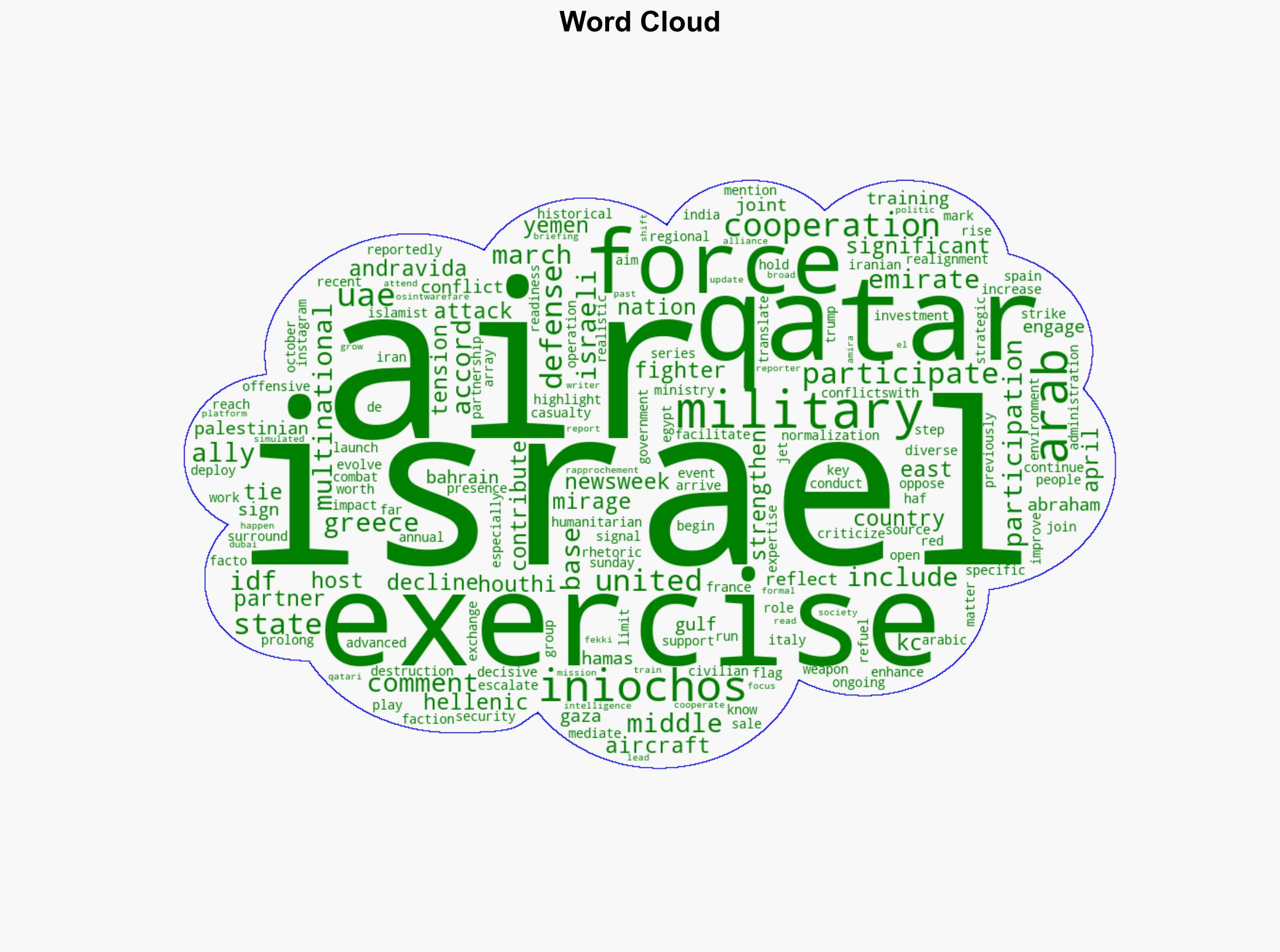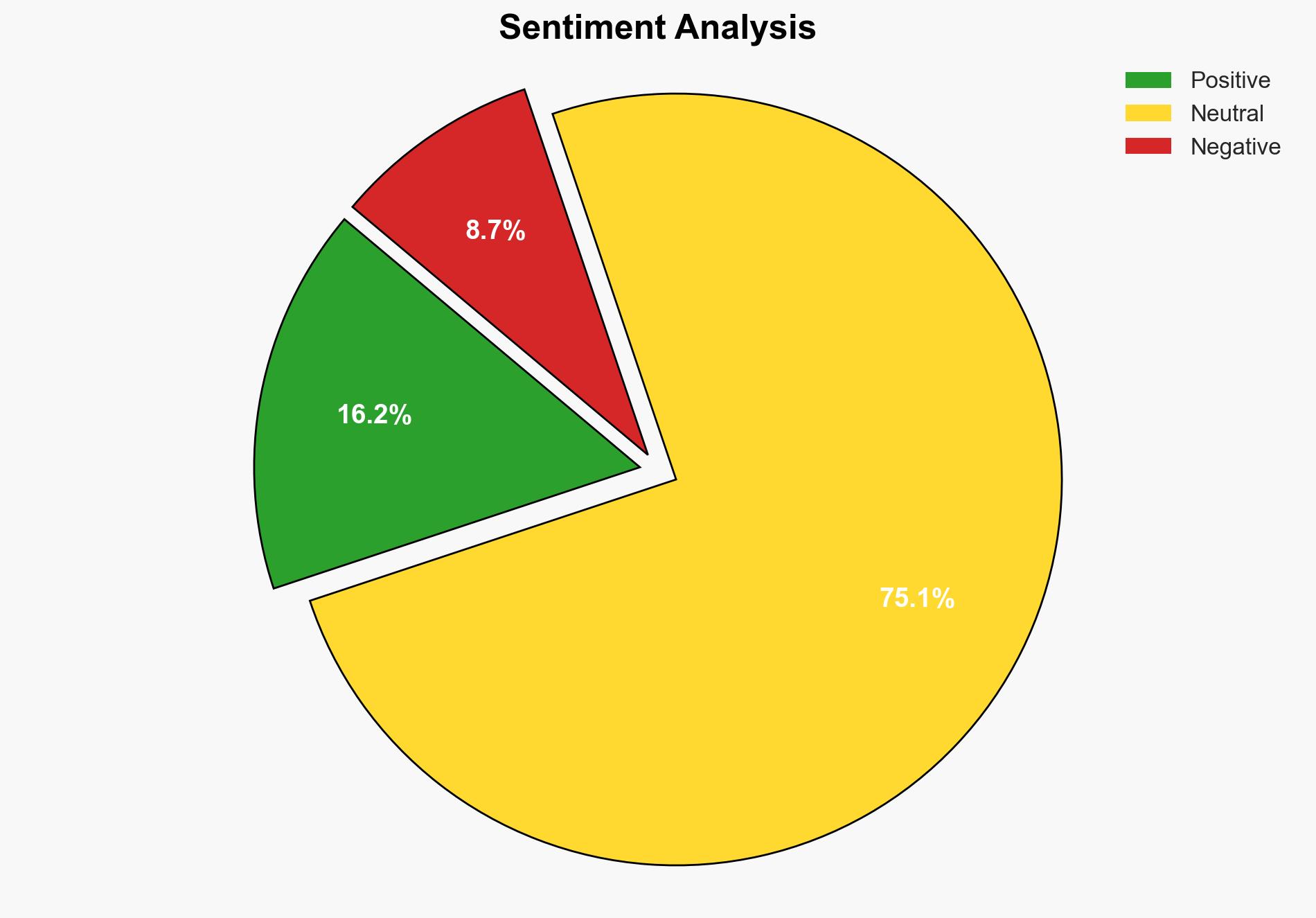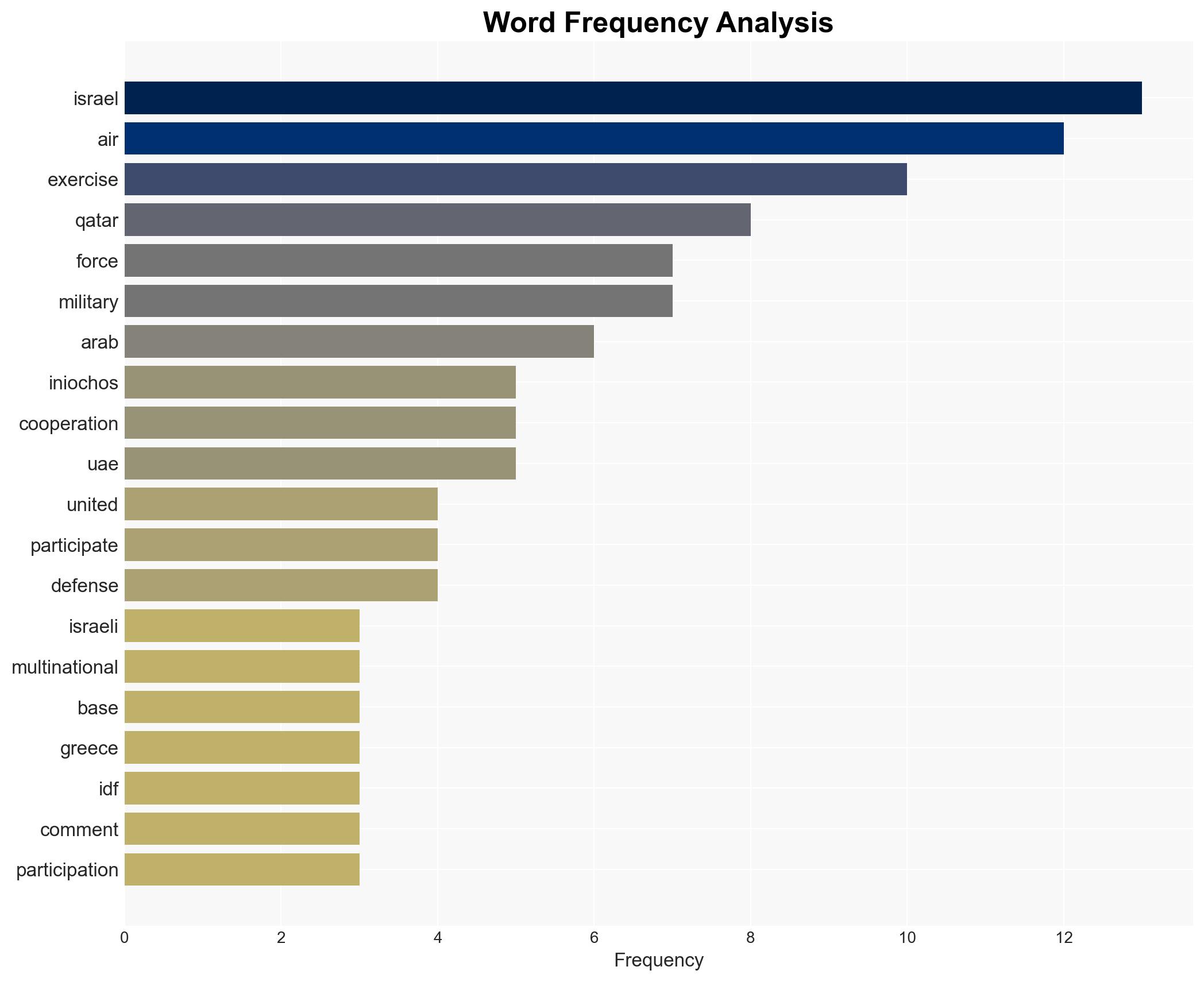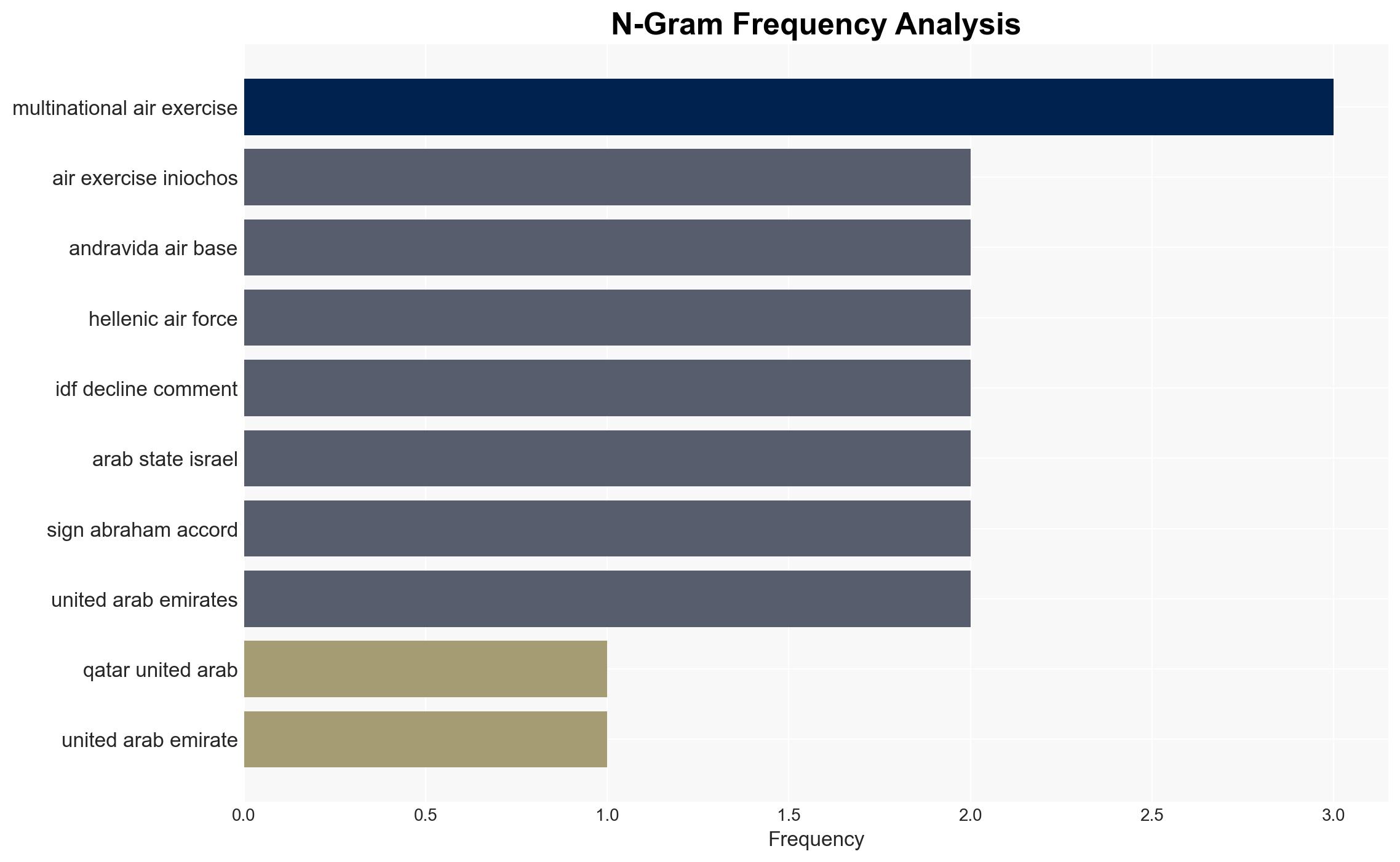US Arab Allies Join Rare Air Exercises with Israelis – Newsweek
Published on: 2025-04-01
Intelligence Report: US Arab Allies Join Rare Air Exercises with Israelis – Newsweek
1. BLUF (Bottom Line Up Front)
The recent participation of Qatar and the United Arab Emirates in the Iniochos multinational air exercise alongside Israeli forces marks a significant shift in regional military cooperation. This development highlights a realignment of strategic partnerships in the Middle East, potentially strengthening security ties amidst rising tensions with Iran and its allies. The exercise underscores evolving defense collaborations post-Abraham Accords and reflects a broader trend of rapprochement between Arab states and Israel.
2. Detailed Analysis
The following structured analytic techniques have been applied for this analysis:
General Analysis
The Iniochos exercise, held at Andravida Air Base in Greece, involves participation from multiple nations, including France, Italy, Spain, and India. The inclusion of Qatar and the UAE, alongside Israel, is noteworthy given historical tensions related to the Israeli-Palestinian conflict. Qatar’s involvement, despite its previous opposition to normalization with Israel, suggests a pragmatic shift towards cooperation, likely influenced by regional security dynamics and economic considerations. The UAE’s continued engagement reflects its commitment to the Abraham Accords and its strategic interests in countering Iranian influence.
3. Implications and Strategic Risks
The participation of Arab states in joint exercises with Israel could lead to enhanced military interoperability and intelligence sharing, potentially deterring regional threats. However, this alignment may provoke backlash from Iran and its allies, potentially escalating regional tensions. The exercises also risk exacerbating domestic opposition within participating Arab states, where public sentiment may not align with governmental policies towards Israel.
4. Recommendations and Outlook
Recommendations:
- Encourage continued diplomatic engagement among participating nations to solidify emerging alliances and address potential conflicts.
- Enhance intelligence-sharing frameworks to improve regional security and counter-terrorism efforts.
- Monitor public sentiment and address potential domestic opposition through strategic communication initiatives.
Outlook:
Best-case scenario: Strengthened military alliances lead to improved regional stability and deterrence against common threats, fostering economic growth and cooperation.
Worst-case scenario: Increased tensions with Iran result in retaliatory actions, destabilizing the region and undermining newly formed alliances.
Most likely outcome: Gradual normalization of relations between Arab states and Israel continues, with incremental improvements in security cooperation and economic ties.
5. Key Individuals and Entities
The report mentions individuals such as Amira El Fekki and entities including the Hellenic Air Force, Israel Defense Force, and the United Arab Emirates Ministry of Defense. These individuals and organizations are pivotal in the context of the exercise and the broader geopolitical landscape.





